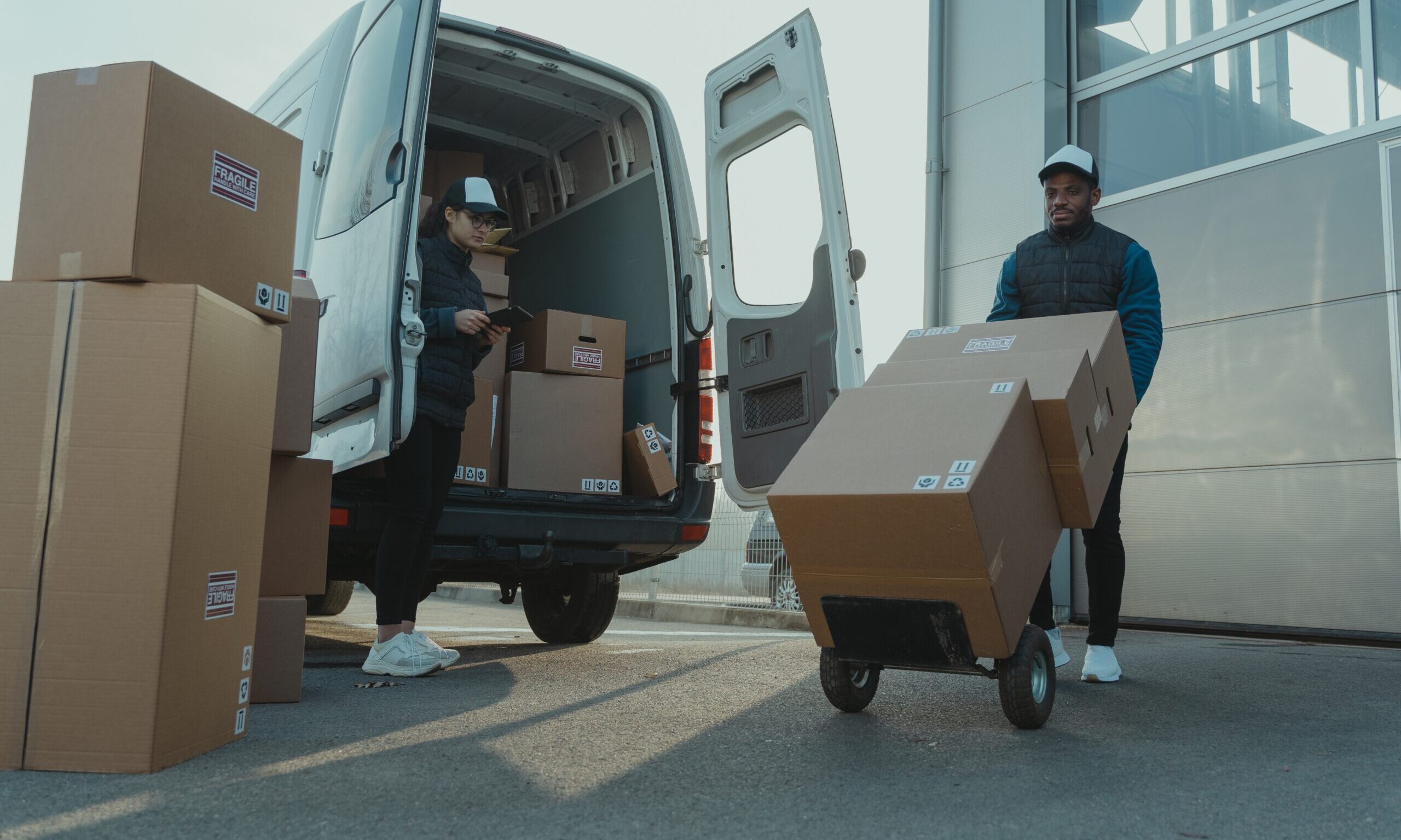A 3PL is a tool that can help you deliver freight to your customers and handle your inventory more efficiently. They will pack and ship products while ensuring that they arrive at the intended destination. These entities allow business owners to focus on getting sales, knowing someone else will cover the back end. We’ll explore if a 3PL makes sense for your business.
How Does Third-Party Logistics Work?
Third-party logistics companies handle distribution. You provide the 3PL with cargo and inform them of orders. 3PL companies have the resources to ensure customers receive their packages. We’ll answer some common questions people have about 3PLs.
Why Do Companies Use 3PL?
Companies use 3PL to store inventory and ship freight to customers. An in-house storage solution can get expensive and take up a lot of space. Renting storage space in a 3PL is more convenient for most companies.
Who Needs Third-Party Logistics?
Many companies use third-party logistics to store and ship their products. These industries often rely on 3PL solutions:
- Ecommerce
- Manufacturing
- Medical
- Construction
- Corporations (90% of Fortune 500 companies use 3PL)
These 3PLs serve various entities, including small businesses and publicly traded companies.
What Is the Main Criteria for Selecting a 3PL Provider?
Businesses can select from many 3PL providers. We created criteria to help companies make the best decisions for their objectives.
Inventory Management
How does the 3PL manage inventory? Some companies will need specific parameters in place, such as set temperatures. Not all 3PL providers can properly house perishable goods. An organized inventory management system ensures your freight doesn’t get lost in the warehouse.
Fast Shipping
Customers want fast shipping times for their products. Amazon has conditioned us to expect goods to arrive within 1-2 business days. Not every company offers free shipping, but some customers will pay extra money for one- to two-day shipping. Select a 3PL provider with a solid track record for quickly shipping goods to customers.
Distributed Inventory
Some 3PL providers have multiple locations. More locations lead to faster shipping times. A 3PL provider can then ship a product from the closest warehouse to the customer’s address.
B2B Fulfillment
Some companies ship freight to businesses instead of consumers. The top logistics companies centralize inventory management to serve B2B and B2C clients.
B2B orders require more sophisticated shipping systems and higher costs than their B2C counterparts. As such, 3PL shippers must have the capacity to fulfill these large-scale orders.
International Fulfillment
Some businesses ship their cargo worldwide. These businesses require 3PL Providers with air and ocean delivery choices. Make sure a 3PL covers all parts of the world where you need to ship.
Return Management
Some customers will not like your product. They will request a refund and send the order back to the facility.
Return management teams address these concerns and accept returns. They receive the returned items and put them back in storage. Look for reviews to see how the return management team and other members of the 3PL perform.
Data Analytics
Data helps us make smarter decisions. By using 3PL datas, you can lower costs, use their assets more efficiently, and increase customer satisfaction. These advantages translate into customer advantages. Data analytics reveal opportunities to reduce costs and maximize efficiency. Make sure the 3PL you use reviews data before making decisions.
Customization
Some businesses want customized packaging and branding for their shipments. Ask a 3PL shipper if they can accommodate your requests. Here are some customization ideas to consider:
- Gift notes
- Branding on packages
- Specific color style for each shipping box
- Wrapping the goods for extra protection
- Personalized letters and thank you cards
Advantages of 3PL
Why should you consider a 3PL instead of creating an in-house solution? We’ll cover some of the advantages third-party logistics offer.
You Can Save Money
Many 3PL providers can arrange affordable LTL and FTL shipments. They have vast networks and can help you save money on transportation. Some businesses don’t have the funds or desire to build and maintain a warehouse. You can use those resources for other areas of your business.
Access to Experts and Industry Tools
A major perk of 3PL shippers is that they know how to navigate the supply chain. They can quickly respond to challenges and ensure your packages reach the right destination.
Also, 3PLs have state-of-the-art warehouses filled with updated equipment. Their resources and expertise strengthen your distribution and can result in happier customers.
Simplify International Logistics
International logistics can get complicated. Many 3PLs have years of experience with international shipments. They know which routes work best for your delivery. You give them the products and let them handle the rest.
Lower Shipping Costs
A 3PL has many relationships in place to lower shipping costs. They know the most efficient routes and can negotiate with many carriers for optimal rates.
Less Work Load
A 3PL takes care of the logistics. You can use your time to grow your business instead of focusing on logistics. Plus, 3PL shippers enable scalable growth that doesn’t become a burden as your business grows.
Disadvantages of 3PL
While 3PL shippers provide many advantages for small businesses and corporations, keep in mind that no logistics solution is going to be perfect. Consider these disadvantages before signing up with a 3PL.
Less Control
On the one hand, 3PLs can give businesses limited control over the logistics process. The 3PL’s staff will package and ship your products. They decide optimal routes and get your products out of the warehouse.
Customers want their products to arrive in a few days. You’ll lose control with 3PLs and then have to rely on them to deliver products on time. While this works out nicely if 3PLs deliver on time, you run the risk of a 3PL failing to fulfill orders on time.
Larger Upfront Investment
Working with a 3PL comes with a significant upfront investment. You’ll have to rent out space in their warehouse and become subject to their business model. Transaction costs can accelerate and make an in-house solution look more favorable.
Distance From Products
Some 3PLs operate far from your premises. You will have to send your products to the 3PL and hope they take care of the logistics.
Some people feel unsettled about being far from their products. You might have to hop on a plane to visit the 3PL. You can look for a nearby 3PL to mitigate this issue, but you may not find a close option.
Finding a Trusted 3PL
Not every 3PL is trustworthy. You’ll have to review several companies before settling with a 3PL that matches your requirements.
Bad Service Reflects Your Company
An underperforming 3PL that misses deadlines will reflect poorly on your company. Customers will become unhappy with wait times and delayed responses to their questions.
You don’t have control over this part of the customer experience. However, it significantly impacts how customers view your brand.
3PL vs 4PL
Business owners can directly reach out to a 3PL. A 4PL is a network of 3PLs. Partnering with 4PLs gives you more warehouses to store your products. You can scale your operations quicker with a 4PL partner.
However, 4PL partners don’t give you direct communication with warehouses. You share your message to the 4PL partner, and they relay that message to their 3PL network.
So, 3PL gives you more control and interaction with the shipper. A 4PL gives you more scalability and locations but fewer interactions with shippers.
3PL Companies Can Help Scale Your Business
There are 3PL companies out there that can handle all of the logistics of your shipments. They package, ship, and deliver your products to customers. Delegating this responsibility with a 3PL saves money and resources. You can use your time and money to pursue other ventures.
A 3PL makes an excellent addition to many small businesses and corporations. Do your research and assess several choices before deciding on the right 3PL for you.
FAQ
In simple terms, a third-party logistics (3PL) provider is a company that provides outsourced logistics services, including warehousing, transportation, and fulfillment, to other companies.
Yes, Amazon is a 3PL company through its Amazon Logistics division, providing warehousing, distribution, and shipping services to both its own operations and other businesses.
The four main types of 3PL providers are transportation-based, warehouse/distribution-based, forwarder-based, and financial-based, each offering a different range of logistics services based on their specialization.



